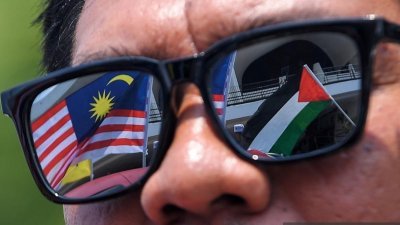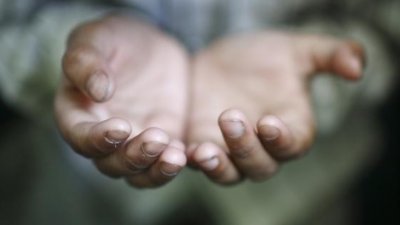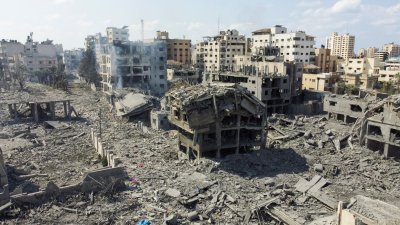安华和团结政府如何带领国家前进,取决于他们是否能正确分析当前影响国家社会、经济和政治的根深蒂固弊病。只有坦诚面对,才能对症下药,提出政策举措和纠正方案,治愈马来西亚当今所面对著多种可摧毁这国家的弊端。
治愈的第一步是确定创伤(身体和心理)是如何发生的,以及为何发生的。医学界把创伤分为三大类型,即急性、慢性和复杂创伤。创伤不仅可以来自暴力行为,还可以是欺凌、威胁、压迫和征服的结果。心理创伤是一种更难诊断的状况,可能是压力事件的影响或结果。个人、团体甚至整个社区都可能经历这些创伤。
创伤可导致各种身体和情感症状和反应。通过诊断和治疗,人们(无论是个人、团体还是社区)可以治愈创伤的根本原因,或者找到处理症状的建设性方法。创伤经历也不一定是一次性事件,其可能反复发生,或者在不同或相关事件中表现出来。
要理解非马来人和非穆斯林的创伤,就需要对导致这种创伤状况事件的历史脉络和发展有所了解。只有此,才能提出治疗和解决创伤的方法。
马来霸权崛起
没有多少人会质疑,造成非马来人和非穆斯林创伤的主要因素,就是在国家独立后不久出现的一种类似种族隔离的霸权意识形态,并且日益猖獗。我们谈论的不是最近才受到的创伤,而是持续数十年,并且已经变得永久性的创伤。
巫统和伊党是形塑和巩固制度化种族主义意识形态主要推手,而其他执政的马华、国大党和非马来政党则扮演了支持角色。他们共同推进了种族政治横行,这种政治操纵巩固了一党独大的政治,直到最近才终结。
特别是在60多年来,选区边界多次变更和划分,以及非马来人选票受到严重不公平对待,非马来人的选票价值只相当于马来人选票1/4,导致了选举结果不公平局面。
根据哈佛大学和悉尼大学于2017年进行的一项关于选举诚信的研究,马来西亚在158个国家中排名第142位,远远落后于我们的东盟邻国新加坡、印尼和菲律宾。该研究以衡量选举制度操纵程度的全球选举诚信(PEI)来评分,该得分衡量选举法律、选举程序、选区划分、选民登记、政党注册、媒体报导、竞选资源、投票和计票过程,以反映一个选举系统被操纵程度。
事实是,世界上任何人想要了解国阵如何能非凡持久的掌权,都不需要花太多时间,就能找到证据,证明早期的联盟和之后的国阵如何通过多种不正当和不道德的手段操纵选举局面。
深受这充满著缺陷体制之害的主要受害者是非马来人。在过去的联盟和国阵政府主导的政治体系中,主要的利益攸关者和影响者是巫统和伊党。当下,国盟内的土团党成了马来政治的主导。
对于巫统及其350万党员,其基于马来民族主义和马来人至上主义的创党原则始终未变。伊党亦如此,这个由宗教师创立的政党,就是来自认同巫统的种族原则和意识形态的巫统党员,也代表著马来社会一个关键组成部分。但是,这个分裂自巫统,将伊斯兰教作为斗争指引的政党,并不是走向温和或进步的方向。与此同时,最新的马来政党,土团党的意识形态和使命目标,同样亦是一种追求体制化种族主义的变体。
官僚在霸权中角色
在国家发展中至关重要的官僚体系,已经变得更加排他性,成为一个马来人的封闭圈子,有人认为其成了维护马来人利益的工具,尤其在巫统和伊党政治强化下,再加上在私人界崛起的马来经济势力。
在官僚体系和两个马来政党联手下,一个来自执政联盟,另一个外表上是反对党,实际上都是在捍卫马来人主导体制,而宗教则被作为掌控政治权力工具,成功重塑了本国的政治和政策,确保马来人在社会和生活层面中优势与霸权。
这种霸权不仅仅在政治权力上,还延伸至许多领域,就如希腊神话里的九头蛇般,有时表面上看起来是有著截然不同目标和不同策略的领袖,实际上,都源于“马来人至上主义”的同一基因。事实上,我们在马来社会每个角落都能找到类似种族妄想症者,其旨在主宰社会的各个方面。
或许有一位马来领袖对国家发展具有多元种族愿景。这个罕见的例外,就是当年争取国家独立的国父东姑阿都拉曼,他在1969年的513事件后被迫下台。这一事件的后果是,更加极端的马来势力,在东姑的副手敦拉萨和马哈迪的支持下,对东姑的温和种族政治进行妖魔化和排斥,以推向一个亲马来人政策的时代。
自从东姑下台后,马来人至上主义和霸权日渐成为以马来人为基础的政党及其领袖的生存和共同动力。今天,巫统、土团党、斗士党和伊党都认同“马来霸权”某种形式,只是在各自的党宪章中,其措辞稍微不同或不那么明确。
今天的问题是,第10任首相安华会采用东姑阿都拉曼、聂阿兹还是马哈迪的模式,来分析和改善国家状况。有人认为,安华很可能是哈迪的模式或翻版,因为安华将伊斯兰教引入政策制定的前沿。
林德宜《团结政府最大挑战》原文:Unity Government's Biggest Challenge
How can PMX Anwar and the Unity coalition government take the nation forward depends on whether they are able to correctly analyse the deep roots of the current diseases that are affecting the nation's society, economics and politics. From this honest analysis can then emerge the policy initiatives and medication that can help cure Malaysia of the multiple illnesses that we see today and which will continue to recur until a fatal attack devastates the country.
The first step in trauma treatment is to identify how and why the trauma - physical and psychological - has come about. Medical science identifies three major types of trauma - acute, chronic and complex. Trauma can stem not only from acts of violence but also as an outcome of bullying, intimidation, oppression and subjugation. Psychological trauma is a more difficult condition to diagnose and can be a response or an outcome of a stressful event. Individuals, groups as well as entire communities can experience trauma.
Trauma can result in a wide range of physical and emotional symptoms and responses. With diagnosis and treatment, people - whether individuals, groups or communities, can address the root cause of the trauma or find constructive ways to manage the symptoms.Traumatic experiences are also not necessarily one off episodes. They can recur repeatedly or manifest themselves in different or related events.
To understand the trauma of non-Malays and non-Muslims, it is necessary to have a historically informed knowledge and assessment of the events and developments leading to, and accounting for the traumatised condition. Only after that can come the treatment and solutions to deal with and recover from the trauma.
Emergence of Ketuanan Melayu
Few will dispute that the key causative disease factor is the emergence of an apartheid like hegemonic ideology soon after independence and which has accelerated in intensity. We are not talking about a recently inflicted trauma but one of a long duration of several decades and which has taken on a permanent complexion.
The main responsible parties in the shaping and concretion of the institutionalised racist ideology have been UMNO and PAS with supporting roles provided by the Malayan Chinese Association, Malaysian Indian Congress and other non-Malay parties that have governed the country. Together they have been responsible for the racially driven politics which has been manipulated and exploited to entrench the single party dominance that the country has had until recently. In particular six decades of electoral boundary changes and gerrymandering with the electorate vote of non Malays severely disadvantaged - by as much as a factor of 4 non malay votes being worth that of a single Malay - has ensured unfair election outcomes.
According to one study conducted by Harvard University and the University of Sydney in 2017 on electoral integrity, Malaysia ranked at 142 out of 158 countries and was far behind our ASEAN neighbours of Singapore, Indonesia and the Philippines. The research had involved assigning a PEI (Global Perceptions of Electoral Integrity) score that measures electoral laws, electoral procedures, district boundaries, voter registration, party registration, media coverage, campaign finance, the voting process, and vote count to capture an electoral system's degree of manipulation.
The fact of the matter is that anyone in the world wanting to understand the extraordinary longevity of BN rule does not have to look hard for evidence of how the Alliance and BN parties manipulated the electoral playing field by numerous underhand and unethical practices.
The main losers of Malaysia’s deeply flawed government have been the non Malays. Within the nation’s political system governed by the past ruling coalitions of Alliance and Barisan Nasional the key stake players and influencers have been UMNO and PAS. Today, the latest coalition of Perikatan Nasional finds its Malay dominated incarnation in Bersatu.
For UMNO and its membership of 3.5 million, its founding principles based on Malay nationalism and Malay supremacy have remained unchanged. The same can be said of PAS. Set up by Islamic clerics who were members of UMNO subscribing to its racial principles and ideology, the party represents a key component of the Malay community. But this breakaway harnessing Islam as its main driving force has not been in any moderate or progressive direction. Meanwhile, the latest Malay party Bersatu's ideology and mission objectives are equally focused on a variation of an institutionalised racist ideology
Civil Service Role in Implementing Ketuanan Hegemony
Critical in the development of the nation, the civil service has become a less inclusive and more exclusive Malay enclave - some would see it as a tool for Malay interests - with the political grip of UMNO and PAS on it reinforced by a burgeoning Malay economic presence in the private sector.
Together the bureaucracy and two Malay parties, one from the ruling coalition and the other from what appears an outwardly oppositional party but in fact is a supportive ally in the espousal of a Malay dominant nation where Islam is instrumentalized to capture political power, have successfully redefined the country’s politics and policies to ensure Malay supremacy and hegemony in life and society.
It is a supremacy that is not directed solely at the retention of political power. It is one that can be likened to a racial hydra with multiple points of growth, outreach and goals, and what may sometimes appear to be opposing leaders with outwardly divergent aims and different strategies. In reality it stems from the same genus of "ketuanan Melayu". In effect we have a mass psychosis which has reached into every corner of Malay society and which is aimed at dominance in every aspect of society.
There has been perhaps only one Malay leader with a multiracial vision for the development of the country. This rare exception is the nation's founding father, Tunku Abdul Rahman, who was forced to resign as Prime Minister after the 13 May 69 riots. The aftermath of the episode saw more extreme Malay forces backed by Tunku's deputy, Tun Abdul Razak and Dr. Mahathir demonise and reject Tunku's moderate racial politics to usher in an era of pro Malay policies.
Since the departure of Tunku, Malay supremacy and hegemony have increasingly become the raison d'etre and common driving motivation for all Malay based political parties and their leaders. Today UMNO, Bersatu, Pejuang and PAS are all in agreement on some form of “ketuanan Melayu” although this may be couched in slightly different or less precise and explicit terms in their respective party constitutions.
The question today is whether PMX Anwar is the Tunku Abdul Rahman, Nik Aziz or a version of Dr. Mahathir in his analysis and treatment of the nation's condition. Some think that he may perhaps even be a version or clone of Hadi as he brings Islam into the forefront of policy making.
要看最快最熱資訊,請來Follow我們 《東方日報》WhatsApp Channel.


















